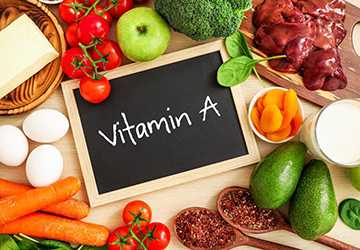Vitamins and minerals are essential nutrients that serve critical bodily functions related to growth, development, disease prevention, immunity, and overall health.
Getting adequate amounts of critical vitamins daily provides the foundation to function at our best. However, many of us fall short in meeting our vitamin needs.

Understanding the primary roles of essential vitamins empowers us to seek them out purposefully in our diets. Meeting our nutritional requirements can profoundly impact health and well-being.
This post will explore five of the most vital vitamins for everyday health. We'll discuss why our bodies need them, what can happen if levels fall short, and the best dietary sources available to meet our needs.
Top 5 Vital Vitamins and Sources
Now, let's explore those top five essential vitamins that provide a strong foundation for good health. We'll also suggest some of the best food sources available for each vitamin.
1. Vitamin C
Vitamin C is an antioxidant that plays critical roles in immune function, iron absorption, collagen production for healthy skin and tissues, and wound healing.
This water-soluble nutrient must be continually supplied in our diets to meet daily demands. Without adequate vitamin C over long periods, people can be at increased risk for chronic diseases and illnesses like heart disease and cancer.
Excellent food sources of vitamin C include citrus fruits, red peppers, broccoli, strawberries, tomatoes, and green leafy vegetables.
2. Vitamin D
Vitamin D, often called the "sunshine vitamin," supports bone health by helping our bodies absorb calcium efficiently. It also regulates phosphate and magnesium levels, enabling proper functioning of muscle, nerve, and immune systems.
Low vitamin D levels are widespread, especially in colder climates and during winter when sunlight is limited.
Fatty fish like salmon and tuna provide vitamin D, and fortified foods like dairy, cereal, orange juice and mushrooms are exposed to ultraviolet light. Daily sun exposure and targeted supplementation also help ensure optimal vitamin D status for overall health.
3. Vitamin B12
As one of eight essential B-complex vitamins, vitamin B12 supports nervous system health and red blood cell formation. It further aids cell metabolism for energy production by breaking down fatty and amino acids.
Animal foods like fish, meat, poultry, eggs and dairy provide the only natural dietary sources of vitamin B12 for humans.
Those following strict vegetarian or vegan diets require supplementation or fortified food consumption to prevent deficiencies associated with fatigue, weakness, constipation, loss of appetite, and weight loss over time.
4. Vitamin A
As a fat-soluble vitamin, vitamin A is indispensable in healthy vision, gene transcription, immune function, embryonic development, and cellular communication.
Deficiencies can lead to vision problems or blindness, delayed growth and development, frequent illness and infection, and skin issues.

Consuming yellow, orange, and dark green vegetables like sweet potatoes, carrots, spinach, and winter squash provides abundant dietary vitamin A. Meat, dairy, and eggs also supply preformed active vitamin A.
5. Vitamin B6
As one of eight essential B complex vitamins, vitamin B6 contributes to over 100 enzyme reactions involving fats and protein metabolism.
It helps maintain normal nervous system function, produces hormones like serotonin and norepinephrine, forms haemoglobin to transport oxygen in red blood cells, assists immune cell activity, and more.
A deficiency can contribute to anaemia, risk of certain cancers, depression, hearing loss, and weakened immunity.
Vitamin B6 is readily found in significant amounts in foods like poultry, seafood, potatoes, bananas, avocados, spinach, and fortified breakfast cereals.
Conclusion
In today's post, we reviewed the integral roles of vitamins C, D, B12, A and B6 in supporting health and preventing disease. Deficiencies in any of these five essential vitamins can negatively impact everyday function and well-being.
Seeking them out consistently in a balanced whole-food diet is vital. Consuming a diverse mix of brightly coloured fruits and vegetables, high-quality proteins, fibre-rich whole grains, healthy fats, and fortified foods guarantees you'll meet your nutritional requirements.
Implementing this knowledge positions you for better health through optimal vitamin status while reducing the risk for deficiency-related issues.
FAQs
Q: What are the symptoms of vitamin deficiency?
Ans: Common symptoms of vitamin deficiency include fatigue, muscle weakness, alterations in mood like depression or irritability, poor concentration, frequent sickness, vision changes, loss of appetite, numbness or tingling, and impaired growth or development depending on the nutrient lacking.
Q: How much of each vitamin do I need every day?
Ans: Recommended intakes differ by vitamin but range between a few micrograms to 1000+ milligrams depending on age, gender, pregnancy status and other factors. A balanced diet focused on whole foods typically ensures adequate intake, with supplementation as needed based on individual lifestyle factors and risks.




